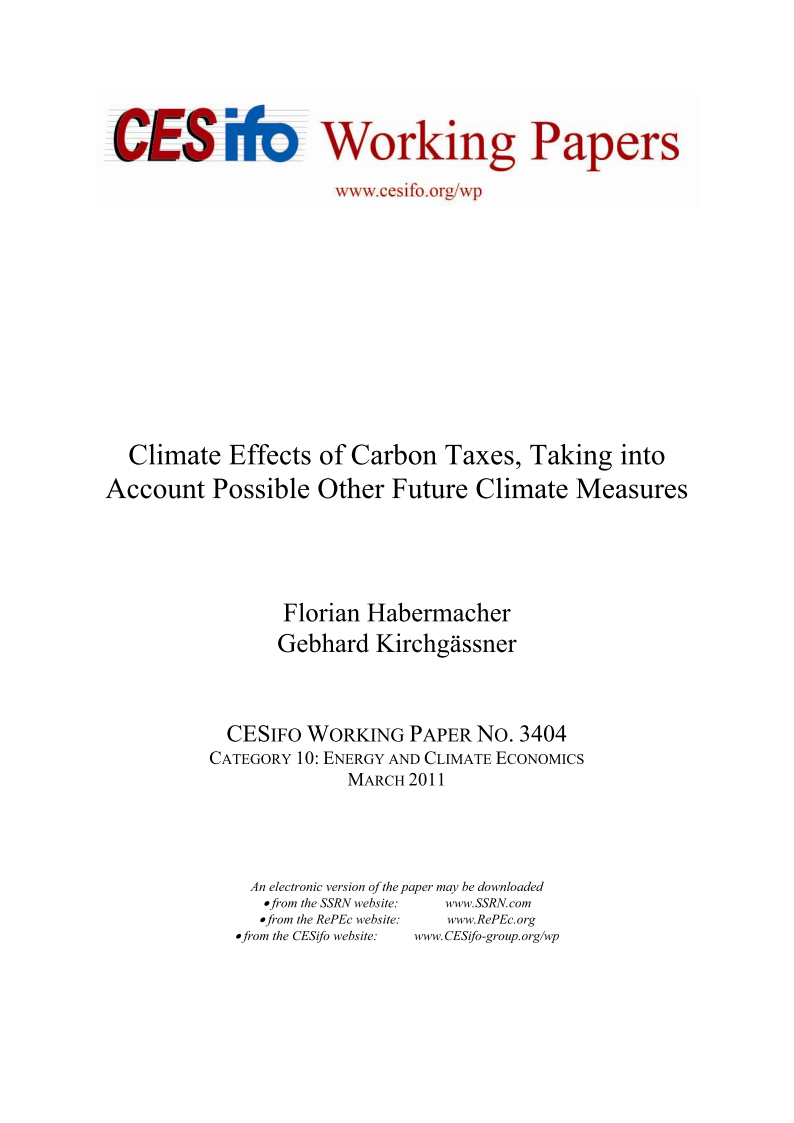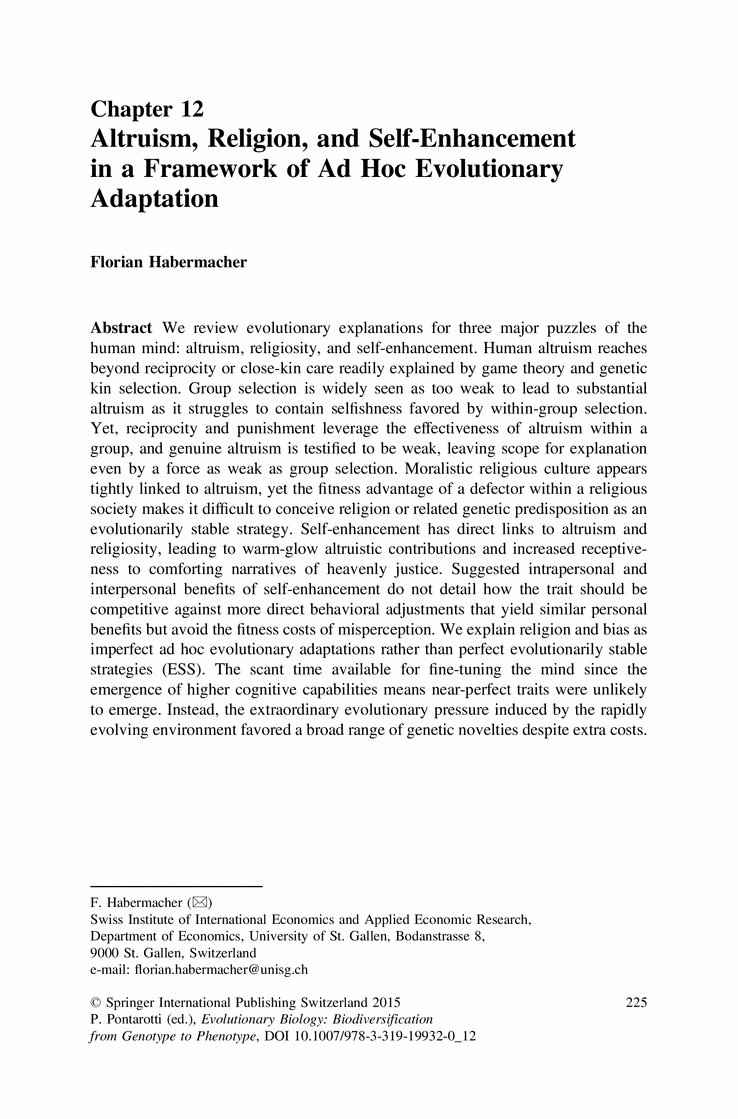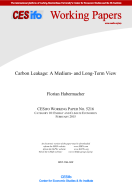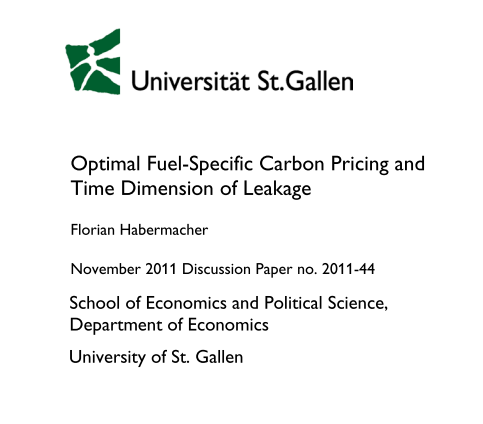
Climate Effects of Carbon Taxes, Taking into Account Possible Other Future Climate Measures
CESifo Working Paper No. 3404
Florian Habermacher and Gebhard Kirchgässner
Increasing fuel extraction costs and global temperatures make it likely that in the medium-term future, technological or political measures against global warming will be implemented. In assessments of current climate policy, possible medium-term future developments, such as backstop technologies, are largely neglected, but such developments may crucially affect policy impacts. If such measures are implemented, a carbon tax introduced now may mitigate climate change to greater effect than recent reflections along the line of the Green Paradox would suggest. Notably, the weak and the strong version of the Green Paradox, related to current and longer-term emissions, may not materialise. Moreover, the tax may allow the demanding countries to extract part of the resource rent, further increasing its desirability.
JEL-Codes: Q54, Q31, Q38, Q41, Q42.
Keywords: climate change policy, greenhouse gas tax, carbon tax, Green Paradox, anticipation effects, exhaustible resources, fossil fuels market, backstop technology, uncertainty, resource rent.
Related
-
Altruism, Religion and Self-Enhancement in a Framework of Ad-Hoc Evolutionary Adaptation altruism, cooperation, evolutionary biology, religion, self-serving bias
-
Carbon Leakage: A Medium- and Long-Term View climate, economics, energy, leakage, resources
-
Optimal Fuel-Specific Carbon Pricing and Time Dimension of Leakage climate, economics, energy, leakage, resources




